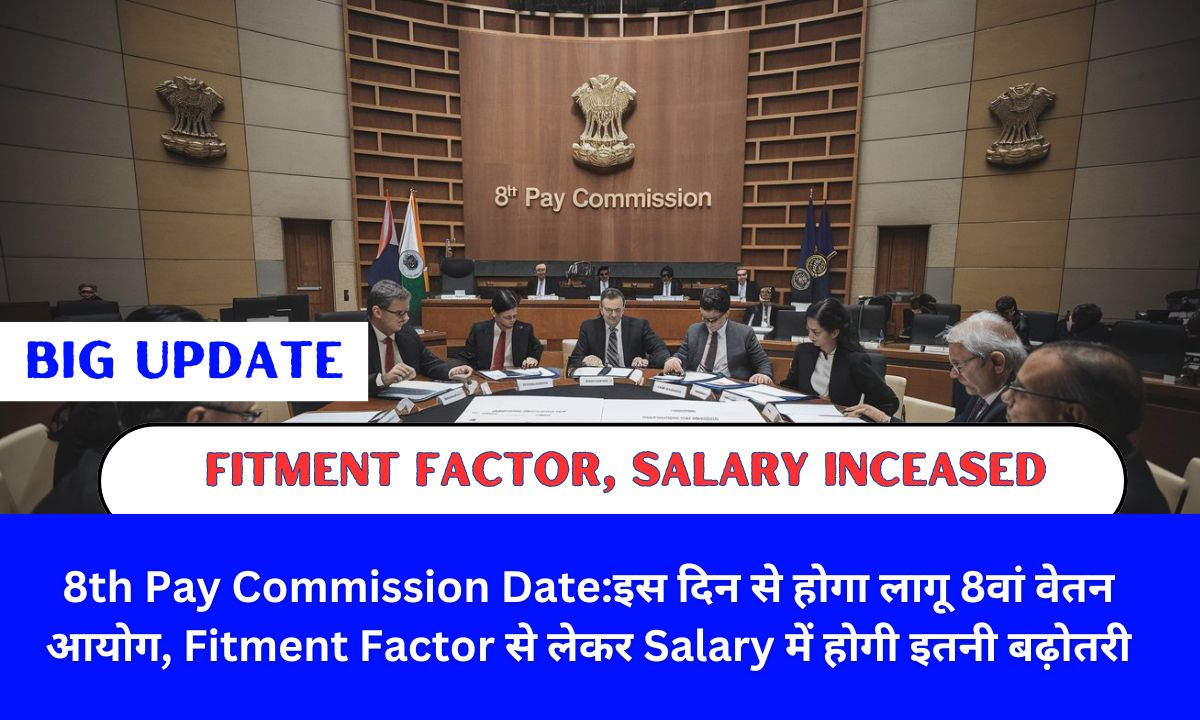The Union Budget 2024–25 lacked a clause allowing the establishment of the 8th central pay commission. On the other hand, Central Government pensioners and staff members eagerly anticipate a statement on the commission, which would suggest policies for changing the allowances and basic pay. Apart from government workers, this commission guarantees a range of advantages including improved pension payments for military members and pensioners.
Using its execution, the 8th Pay Commission seeks to minimize the effect of inflation and bridge pay differences across different employee categories. Go through this blog to find out more about the goals and aspirations of the 8th CPC.
Contents
8th Pay Commission – Overview
The 8th Pay Commission first announced in 2020, is India’s proposed effort targeted primarily at upgrading the salaries, allowances, and pension benefits of central government employees. However, the commission has not yet been officially created, and there is no set implementation date. The commission’s goal is to address rising living costs and ensure that CGE pay reflects current market value.
Despite expectations that the commission will go into force in 2024, the Indian government has yet to make a public statement about its formation. However, following the Budget 2024-25 speech, Finance Secretary TV Somanathan emphasized that there is still time to implement the 8th Central Pay Commission. The 8th Pay Commission, once established, has the potential to benefit around 67 lakh retirees and 49 lakh Central Government employees. They have been seeking that the fitment factor be increased to 3.68 in the next pay commission, which would raise the minimum salary to Rs.26,000 from Rs.18,000.
8th Pay Commission Overview
| Category | Details |
| Commission Announcement | Proposed in 2020 |
| Implementation Date | Expected by January 1, 2026 (not officially announced) |
| Target Audience | Central Government employees, military personnel, and pensioners |
| Expected Beneficiaries | Approximately 49 lakh CG employees and 67 lakh retirees |
| Expected Salary Increase | Basic salary increase projected between 20% – 35% |
| Pension Enhancements | Potential pension increase of up to 30% |
| Proposal Status | No official announcement yet, pending government validation |
8th Pay Commission – Implementation Date
The official implementation date of the 8th Pay Commission for India’s vital government employees is still undetermined. Although it is expected to follow the typical 10-year interval between Pay Commissions, with a predicted date of January 1, 2026, no official announcement has yet been made.
8th Pay Commission – Latest Updates
Before the 2024 Budget, the Central Government received a proposal letter to establish the 8th Pay Commission. The proposal letter includes recommendations for basic pay, allowances, pension, and other benefits for government employees and pensioners, which have been handed up to the government. If the government announces the Eighth Pay Commission, it will take effect on January 1, 2026, by the typical 10-year interval between pay commissions. Nonetheless, this is theoretical until validated by the government.
8th Pay Commission – Benefits
The 8th Pay Commission offers the following advantages expected to affect government workers and the Indian economy favourably:
- Increased Salaries: Basic salaries are predicted to rise between 20% and 35%, hence increasing take-home pay for central government staff members. Furthermore guaranteed by the rise in base pay are improved living conditions and financial security.
- Improved Allowances: Various allowances, such as House Rent Allowance (HRA), Transport Allowance (TA) and Dearness Allowance (DA), could be changed to match changing living expenses and inflation.
- Enhance Spending: Government workers could raise their spending with more discretionary income, therefore stimulating the economy with higher demand for products and services.
- Increase Retirement Payback: With an expected rise of up to 30%, the improved pension might provide more financial stability after retiring.
- Change in Tax Revenue: Higher pay could result in more taxes the government collects.
- Lower Financial Stress: Improved social stability and reduced dependency on social welfare programs can follow from employees’ more consistent financial situation.
- Retention of Talent Attractiveness: Competitive pay scales should appeal more to qualified experts for government employment, therefore helping to attract and retain talent.
8th Pay Commission – Frequently Asked Questions
Ans: Although the Government of India has not declared the date, the implementation date is likely to be January 1, 2026.
Ans: It is estimated that salaries are likely to increase in the range of 20% to 35% and the fitment factor could rise to 3.68.
Ans: The 8th Pay Commission is likely to cover about 49 lakh Central Government employees and 67 lakh pensioners, including military personnel.

